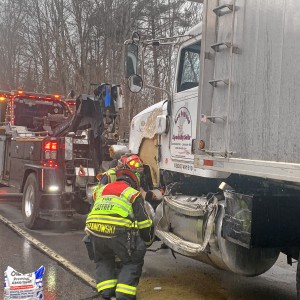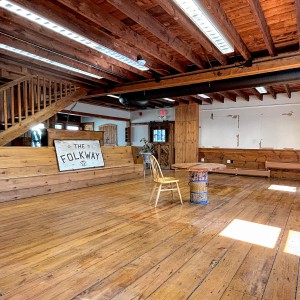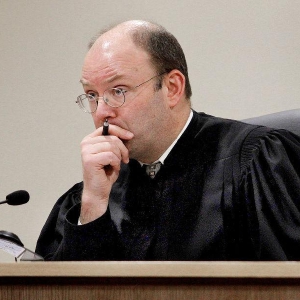Viewpoint: L. Phillips Runyon III – Jaffrey has seen this case before
| Published: 04-09-2024 7:31 AM |
One of the many far-reaching cases rocketing its way to the Supreme Court this term will settle whether the State of Texas - and presumably any other state - can use its own laws to criminalize and detain people it believes are entering its borders illegally.
The impetus, of course, is that Texas doesn't think the federal government is doing enough to stop what some there are calling an "invasion of illegals," so in typical Old West fashion, it's coming to the rescue.
Ironically, though, this major issue has already been decided in one of the smallest states and one with just about the tiniest of international borders – New Hampshire. And not just anywhere in New Hampshire, but right here in our own Jaffrey courthouse. We have a couple of little faux-columns out front, though nothing quite like the abundance of marble outside the big palace of justice in Washington. Still, our case attracted national interest at the time, brought journalists from across the country to our modest courtroom and resulted in a decision that may have echoes in those distant marble halls.
It happened back in 2005, when New Ipswich and Hudson police officers both stopped vehicles in their towns with non-English speaking occupants and quickly determined that they were "undocumented" in the sense that they couldn't prove they were lawfully in the United States, despite having successfully secured much-needed jobs as roofers or construction workers.
The police must have been talking with each other, because once the federal immigration authorities in Boston were alerted and respectfully declined the invitation to take custody of the young men -- who were likely small fry on their most-wanted list -- the police decided they had to get creative. And what they came up with was to charge the men with criminal trespass under New Hampshire law. Not trespass in the usual sense, though, because they were on public roads, not private property, but trespassing in the country as a whole, just by living, breathing and working so they could send for their families.
That's where our little court got involved. Our head judge in Concord asked whether we would consider hearing both towns' cases, and not yet aware of the approaching firestorm, we were happy to oblige.
Then, it wasn't long before the satellite trucks and reporters from all over the country started showing up. Because, someone quickly deduced, if this was a successful workaround of federal immigration law, the old days of the Wild West were back and the states could make up their own rules about who to lock up - or tar and feather and run out of town.
We realized we had a tiger by the tail when some big-time immigration lawyers got involved and we started getting amicus ('friend of the court") briefs from the ACLU and the government of Mexico. The hearings themselves were standing-room-only and it didn't take long to realize that some serious research would be necessary to get the decisions right.
Article continues after...
Yesterday's Most Read Articles
 UPDATE: Drivers identified in Jaffrey dump truck crash
UPDATE: Drivers identified in Jaffrey dump truck crash
 Scott Bakula starring in Peterborough Players’ ‘Man of La Mancha’
Scott Bakula starring in Peterborough Players’ ‘Man of La Mancha’
 Fassett Farm Nursery in Jaffrey focuses on native plants
Fassett Farm Nursery in Jaffrey focuses on native plants
 Former home of The Folkway in Peterborough is on the market
Former home of The Folkway in Peterborough is on the market
 Bernie Watson of Bernie & Louise dies at 80
Bernie Watson of Bernie & Louise dies at 80
As it turned out, there were some helpful Supreme Court precedents on the books about this kind of localized enforcement effort, and while we might have been skeptical of their continuing validity if the issue were to arise today (oh, that's now the issue!), that's what we naively relied upon for our decision. After all, our case arose back in the days when precedent among the Supremes meant more than what the current majority thought/felt/wanted it to mean.
Where we finally came down on the issue was that in order for our court to determine the outcome, it would have required us to rule on the immigration status of the defendants under federal law. After all, we couldn't find them guilty under our trespass statute if we didn't know beyond a reasonable doubt that they weren't lawfully present in these United States. And that wasn't an issue that had been delegated by the feds for each independent state court to determine.
So, the defendants' motion to dismiss the charges was granted, and they left the courtroom with all the cameramen and journalists trailing behind. Our 15 minutes in the national spotlight came to an end, and the New Hampshire Attorney General's office must have agreed with our interpretation, because the appeal period expired without a peep from them. They may not have liked the outcome, but perhaps they agreed with our analysis, and weren't yet inclined to challenge the underlying precedent.
Apparently, those days are gone now, however, because if you don't like where the law stands on an issue, you don't just take your brief and go home. You go straight to the top and count on the fact that you probably have at least five votes ready to see things your -- really their -- way. Precedents have come to conjure up quicksand rather than bedrock, and that makes all of us a lot less sure-footed.
L. Phillips Runyon III has practiced law in Peterborough for 50 years and was the presiding justice of the 8th Circuit Court for 27 years.

 Opinion: It’s time to properly fund education
Opinion: It’s time to properly fund education
